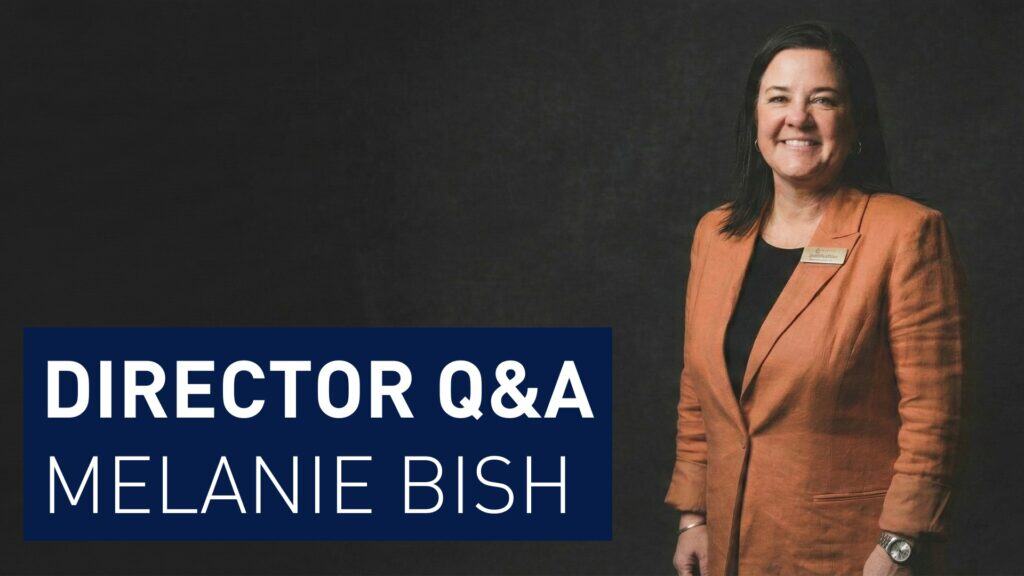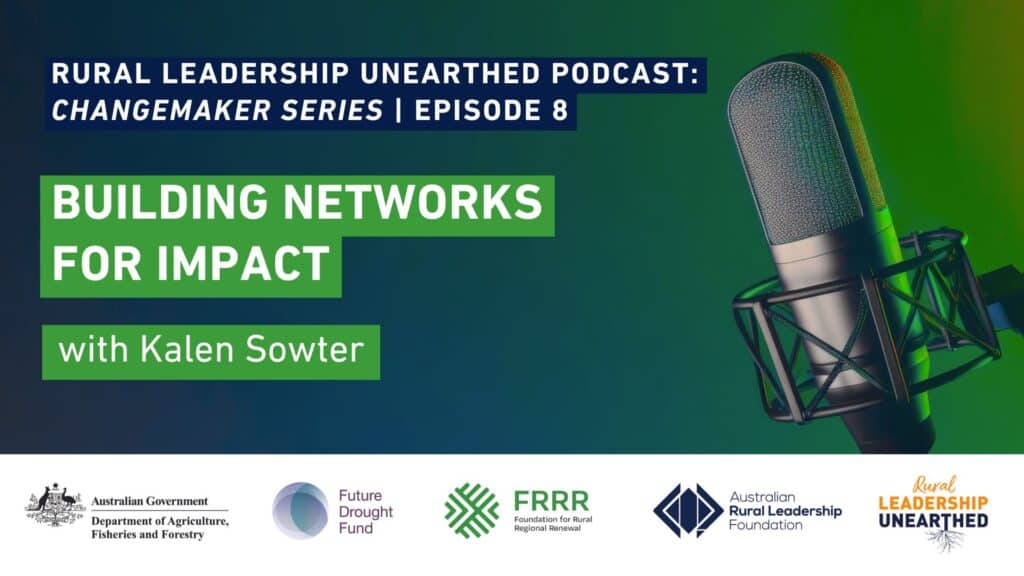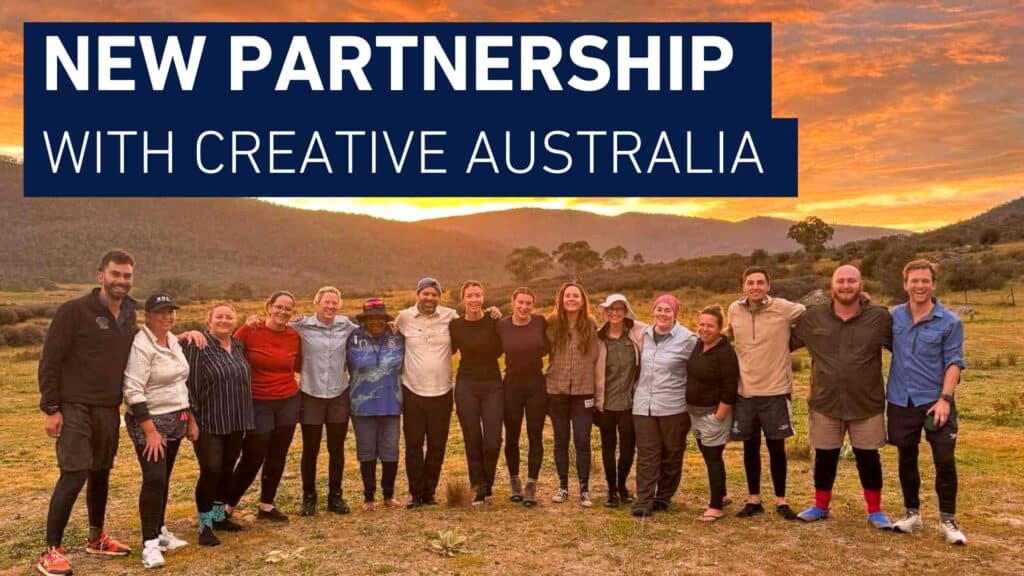National Reconciliation Week reflections by ARLF's Director of Engagement, Philippa Woodhill.
What does genuine reconciliation ask of us?
Beyond acknowledgment, beyond symbolism, what does it look like to build meaningful relationships, share or handover decision-making, and stay in the work even when it’s uncomfortable?
It’s a question that sits at the heart of our practice at the Australian Rural Leadership Foundation (ARLF). It’s also one that grows in complexity and importance with each step we take. As we mark National Reconciliation Week this year, I want to share a reflection on where we’ve come from, where we are now, and how we are continuing to listen, learn, and lead better.
Respect as a principle and a practice
One of the values is to respect and engage with First Nations’ cultural knowledge. It is embedded in our learning models, reflected in our partnerships, and carried through by our alumni.
But respect, like leadership, is not a slogan. It is a daily, deliberate practice and one we keep coming back to.
We acknowledge that our programs are delivered on the traditional lands of Australia’s First Peoples. We pay our respects to Elders past and present and recognise that sovereignty was never ceded.
Acknowledgement is a necessary foundation. But when it stands alone without corresponding action, reflection, or redistribution of power, it risks being hollow. Our responsibility is to ensure that every action we take builds on that foundation and is led with purpose.
Learning what matters
As the ARLF continues to deepen our understanding of what it means to be allies, we’re also examining the spaces we occupy and which decisions we make.
Some of those decisions, we’re realising, are not ours to make alone.
This is where leadership as service really matters. It’s about slowing down. Listening more. Sharing power. Being guided, not just guiding.
Over the past 12 months, we’ve held a series of important conversations with our First Nations alumni. In late 2024, ARLF Associate and alumni Michelle Deshong, Annette Simpson, our Manager of First Nations Engagement and Learning, and I hosted members of our alumni community in Brisbane to hear more about their lived experiences in our programs and their vision and needs for future impact.
It was a humbling few days. There was deep generosity in what was shared and deep responsibility in what was asked of us.
More recently, Michelle hosted an additional number of online feedback sessions for our First Nations alumni, again with great enthusiasm from our alumni network. What we heard has already led to change: more regular feedback mechanisms, greater alumni co-design opportunities, and program refinements that place cultural knowledge front and centre.
We are committed to continuing this process with our alumni, staff and Board as we establish new governing structures and processes that has self-determination at its centre.

Connecting through Country
Since our first program in 1992, connection in Country has been a core part of the Australian Rural Leadership Foundation, starting with the Australian Rural Leadership Program (ARLP). Our first Aboriginal participant joined us in 1995 and Torres Strait Islander in 2003. Since then, more than 500 First Nations people have participated in a range of ARLF programs across every state and territory. Together, they make up 16 percent of our alumni network.
We are proud of that legacy. But our pride cannot be passive.
We recognised that in the past, the weight of educating others has at times fallen on the shoulders of our First Nations participants, alumni and facilitators. We now recognise this imbalance. Increasingly, our focus is on creating environments where non-First Nations participants and alumni are expected to take responsibility for their own learning. That includes confronting biases, questioning assumptions, and doing the work to grow their understanding of First Nations cultures, histories, and futures. This cultural shift is vital if we are to build genuine and enduring partnerships.
On the other hand, we also recognise that in many cases our position is not to lead from the front, but from the side, making space for. Programs like our Milparanga programs, our Torres Strait Islander leadership initiatives, and our First Nations Changemaker workshops in Bamaga and Alice Springs are built through community, not for community. In these programs, we aim to hand over the mic, the process, and the power. These programs are designed and delivered by First Nations facilitators and associates specifically for First Nations participants. They are delivered in-Country and informed by traditional knowledge systems, narratives, and truth-telling.
Our First Nations-led delivery is supported by long-term partner investment and a commitment to culturally safe spaces. In 2025, we will build further on our commitments, including the introduction of a Torres Strait Liaison role to guide our strategy and support our alumni community – now more than 170 strong in a region with a population of just 8,000.
We also continue to work with long-standing partners like National Indigenous Australians Agency, Torres Strait Regional Authority, and now Parks Australia and the Indigenous Marathon Foundation, who help us create access pathways into the ARLP, our Milparanga and TRAIL programs through dedicated First Nations scholarships.
Formalising our approach to reconciliation
The decision to formally implement our RAP was not made lightly. We are aware that for some, the process can appear to turn meaningful relationship-building into a box-ticking exercise. But we’ve taken this step because we want to uncover our blind spots and set transparent expectations for ourselves and our networks. We want to measure how we’re living our values and identify where we need to grow. Most importantly, we believe the responsibility of allyship and reconciliation work should be shared by everyone in our organisation not just shouldered by a few. If respect is one of our leading principles, then we must all be able to demonstrate what that looks like in practice.
Our RAP commitment includes a formal review of our recruitment processes, business practices, partnerships, and program design through a cultural lens. It also involves examining how First Nations leadership is elevated across our communications and governance.

An invitation to reflect
As we observe National Reconciliation Week, I invite you to reflect on your own leadership.
Whether you lead in a boardroom, in Country, in a paddock or through quiet influence in your community and family pause to reflect- who do you serve? What does it mean for you to lead with respect? What does genuine partnership look like in your space? And how might you do more?
Reconciliation work will always be uncomfortable because it asks us to look closely at power, history, and accountability. But discomfort is not failure. It’s where growth begins.
On 3 June, we also mark 33 years since the High Court’s decision in the landmark Mabo v Queensland case, overturning the concept of terra nullius. It’s a moment that reminds us how one voice can snowball into systemic change.
So, start small. Start with listening. Start with one meaningful conversation. And let that be the foundation for more.





